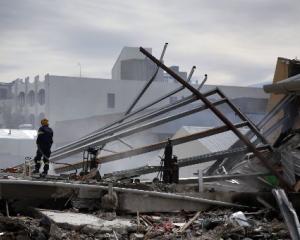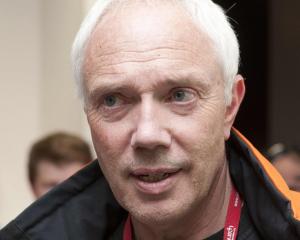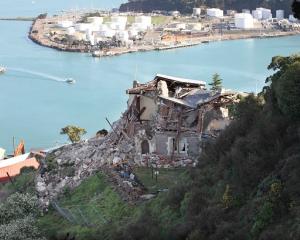ANZ head of market economics and strategy Khoon Goh said estimates of the direct cost of the Christchurch earthquake were difficult to calculate but he believed it would be close to $12 billion.
This was in addition to the $5 billion cost of the September earthquake, and Mr Goh said the immediate economic effect would be significant.
"As a starting point, we are assuming a minimum 0.5% hit to first-quarter growth, but this is based on some fairly conservative assumptions. Numbers closer to 1% seem more intuitive."
BNZ senior economist Craig Ebert said the bank had lowered its 2011 full-year economic growth forecasts by 1.5%, from 5.1% to 3.6%.
"Our previous anticipated interest-rate hikes have been delayed and our forecast appreciation of the New Zealand dollar into mid 2011 has been scaled back to a flatness right through this year," he said.
Activity was expected to pick up in 2012 and 2013 as the Christchurch rebuild began, but Mr Ebert said the projected lift in investment and GDP from this would simply recover what had been lost.
Mr Goh said the lack of confidence could dampen economic activity into the second quarter of this year.
"The rebuild will be huge, but it will be significantly delayed, protracted five years-plus, and stymied by resource shortages," he said, adding not everything that was destroyed would be rebuilt.
All this meant at least a six-month delay for an expected turnaround in the economy, and would slow the return of Government accounts from deficit to surplus.
The first signs of how the rebuild will be funded and structured could be seen this week with the announcement of a package of measures.
Mr Goh said that package needed to address microeconomic policies to assist the reconstruction effort, such as attracting people to skilled trades.
"Monetary policy plays second fiddle to fiscal policy in events like this, but should still do its part."
He added his voice to earlier calls for the Reserve Bank to cut the official cash rate (OCR) by 50 basis points, and said there was little prospect of a return to normal monetary policy until 2012.
Mr Ebert said he doubted the OCR was the right tool to ease the economic pressures after the earthquake, but it was happening anyway because the dollar and interest rates had been falling since the disaster.
Instead, he believed the Reserve Bank should be looking at practical and targeted efforts to help those affected.
Mr Ebert is also forecasting an improvement in our current account this year from 3% to about 1% of GDP, because of lower consumption, investment and imports, a lower exchange rate and more foreign reinvestment money coming into the country.
But that was expected to widen again to about 4% next year.






